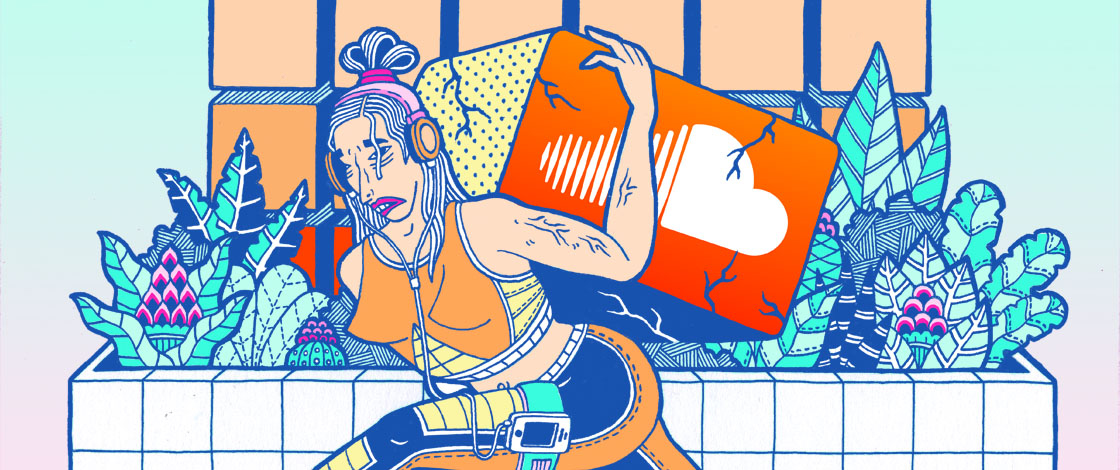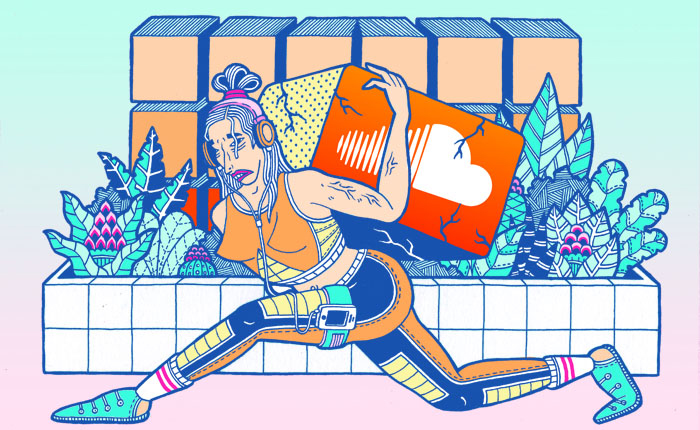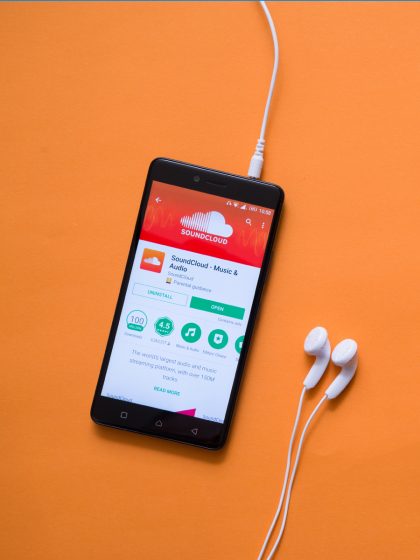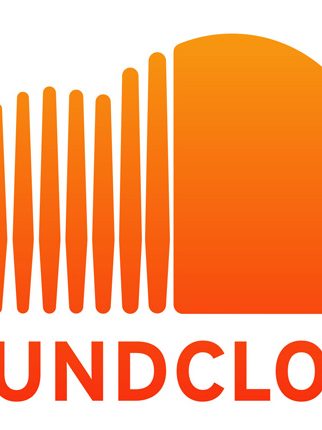SoundCloud Needs to Just Die so the Scene Can Move Forward

A number of weeks ago, the questionably sourced news that SoundCloud was going to have all of its mixes removed in the undetermined-but-presumptively-near future spread around the many hack music blogs of the internet like a feral virus. While the rumor turned out to be unsubstantiated—the company quickly released a statement insisting that “the story has no truth to it”—it was met with a familiar groan and a collective head shake from the dance music community. No one was at all surprised.
Despite the fact that no one really wants to see all of that wonderful (and terrible) free content succumb to its inevitable fate, there was a united sadistic pleasure in seeing this wheezing, spluttering bandit that we all once loved get struck with another arrow as it crawled through the snow.
Perhaps that was a little dramatic, but it’s a pretty appropriate perspective of how we have come to view SoundCloud. Here was this romantic bandito, a Robin Hood–like business, that rose up from humble means, plundered the rich record labels, and gave abundantly to the poor music fans and aspiring internet DJs. But SoundCloud emerged during a period of egalitarian digital revolution. The old rules were torn up, and a lawless vacuum existed. Still giddy after Napster had brought the majors to their knees around the turn of the millennium, the next six or seven years saw many different incarnations of illegal downloading and proto-streaming sites appear, empowering the consumer at the expense of the artist and the labels. From 2004–09, an estimated 30 billion tracks were downloaded illegally. When SoundCloud appeared in 2007, dance music was almost completely digital, resurging in popularity, and enjoyed by a public with an insatiable appetite for unlimited free shit.
But the world of online music has changed. The consumer has largely decided that paying for art is ethical and important for growth, and we’ve all eased into the idea that streaming is the desired platform. Now the music industry has finally caught up, and there are no more free lunches. The bandits we once loved are being rooted out and slain in front of the bloodthirsty public, and we love it—because in dance music, we don’t dislike our labels. We love them, and we love our artists, and we’ve realized that it’s not okay at all for music to merely act as a promotional tool for live performance. You should get paid for the music you create. And SoundCloud has been unable/unwilling to go straight.
Therefore, it’s time for it to die.

Two things kept SoundCloud alive a lot longer than it should have been: incredible software, and mixes. But now Apple Music and Spotify—both excellent, user-friendly platforms in their own right—have done deals with Dubset, allowing them to host mixes, remixes and mashups legally. So, that’s it. Curtains. They have the singles, the playlists, the mixes, the remixes, great user capabilities, paying customers, and the collective embrace of the music industry.
Mixcloud, the platform that the industry has been expecting to capitalize on SoundCloud’s demise for a couple of years now, has done next to nothing to make itself the destination of choice. They have been a friend to the labels, artists, publishers, and performers’ rights societies since launching in 2008. But as time went on, Mixcloud proved itself to be that old friend with lots of potential and great intentions, but who never quite got it together. Even as SoundCloud started to nosedive spectacularly this time last year, Mixcloud could only stand on the sidelines meekly, trying to politely explain its admirable royalties distribution over the deafening roar of its rival’s Hindenburg-esque collapse.
Despite its flaws in strategy and technology, Mixcloud is playing by the rules and is a considerably more welcome platform in the space than SoundCloud is right now. With news every week of DJs having their music removed (Ookay, Four Tet and Martin Garrix have all been aggrieved by takedowns of late), public opinion has shifted considerably as the company continually fails to straighten out and protect the interests of the artists. But while I’m lambasting them for an inability to sort their shit out, we should be clear about this: Electronic music is, without question, the most complicated genre of music when it comes to playing by the rules.
“One potentially positive byproduct of this is that SoundCloud plays and follows will cease to be the measuring stick for a DJ’s value. A&R guys might be forced to book and sign DJs based on their music, as opposed to how many reposts their latest heater drummed up.”
For a start, dance music is nowhere near as well policed as other areas of music. The labyrinthine mess of labels, sublabels, mixes, mashups, remixes (both official and unofficial)—along with a distinct absence of binding contracts—all make dance music the most organically vibrant and fastest-developing genre in music. But the consequence of having such loosely controlled borders is that there is no accountability, rights holders are not being paid sufficiently for their work, and a lot of independent labels have just about given up on trying to get money for streams. Only in an ecosystem like this could a service like SoundCloud become the go-to platform.
By the time the major labels started taking an interest in dance music, it was already too late. They had to be on SoundCloud, because that was where the audience was. But it was only a matter of time before they would start coming for their blood. Some overdue deals were struck between 2014 and 2016 with Sony, Warner Music Group, and Universal in order to cease the initial cull of content that spooked a lot of producers and DJs. But it was too little too late—like trying to piss out a forest fire.
One potentially positive byproduct of this is that SoundCloud plays and follows will cease to be the measuring stick for a DJ’s value. A&R guys might be forced to book and sign DJs based on their music, as opposed to how many reposts their latest heater drummed up. But in a world driven by deceptive social media influence and reach, thinking one platform’s demise will realign the jaded paradigm is naive. We’ll just move on to the next facade.
SoundCloud’s inevitable death is just the natural evolution of things. The marketplace is effective because it is Darwinian in its pursuit for the strongest and the fittest. And SoundCloud is the panda bear that won’t mate: beloved, majestic, symbolic, yet infuriatingly unwilling to take the necessary steps to save itself from extinction.
And that is why we need to bid it farewell and move on to the next platform.
Illustration by Kristen Liu-Wong.



